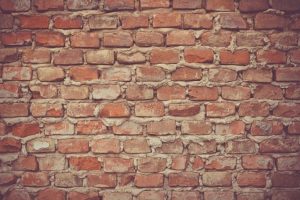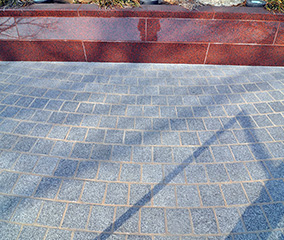
Stone masonry is a great building material that is incredibly durable and long lasting. However, over the years, your brick and mortar structure will begin to show signs of deterioration. You should have your masonry inspected once a year, or possibly more often if you notice your increased signs of wear and tear. By putting in some extra effort to assess your building’s masonry construction, you can identify potential issues that could turn into significant problems if left alone. Here are some signs to look out for that could indicate deteriorating masonry.
Cracks in the Masonry
Cracked stones are one of the most common signs of masonry deterioration. Cracks can either form vertically or horizontally along the wall. Vertical cracks will travel their way up to the roof and may even split stones. These cracks tend to be associated with settling or changing in the foundation rather than the masonry itself. Horizontal cracks that have split through brick and stone are often a sign that the wall is failing. Usually, these cracks indicate that the stones or bricks themselves are breaking down and that their load-bearing capabilities are compromised.
Compacted Bricks
You can easily identify a compacted brick because it will have lost its original shape. It can appear bowed or even cracked. This damage to the bricks can cause several issues. For example, it can open up a hole in the wall allowing water to get through. Even more so, a single compacted brick will most likely lead to more because it no longer provides the surrounding bricks with the pressure required to remain secure.
Interior Issues
The inside of your home can also indicate if your masonry is deteriorating. If you notice cracking in the interior walls, it could be a result of masonry issues. Some other signs to look out for include moisture spots on ceilings, drafts penetrating through walls, or a sudden deformity in the appearance of doors or windows.
White Efflorescence
During your inspection, if you notice a white powdery substance on the stones, called efflorescence, it may indicate underlying issues. Efflorescence occurs when salts in the mortar or stone are dissolved by excess moisture and travel to the surface of the stones. Efflorescence suggests there is too much moisture in your stone walls. The powder itself does not impact the masonry, but you should contact a professional to repair the excess water in the stones.
Contact Del Prete Masonry Today!
Whether you are ready to start your next masonry project or are still hesitant and have questions, Del Prete Masonry is here to help. We have the experience and expertise to get it right the first time. Questions? Want to visit some of our residential or commercial projects? Ready to set up a consultation? Feel free to give us a call at 410-683-0650 or visit us online. We are happy to serve Baltimore City and County, Harford County, Carroll County, Anne Arundel County, and Howard County. To see examples of our work and to keep up with our new and exciting projects, be sure to Facebook, Twitter, and Pinterest.
Tags: Commercial Concrete Repair, Commercial Masonry Restoration, masonry





























